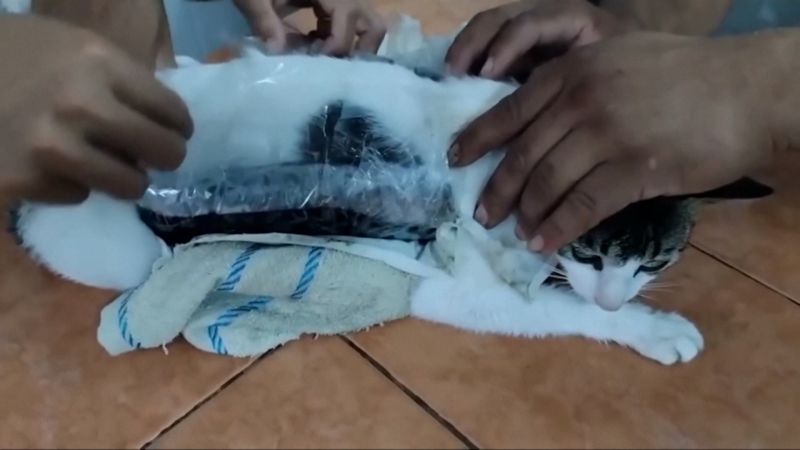Helping Your Child Stop Sucking Thumbs And Pacifiers: A Parent's Guide

Welcome to your ultimate source for breaking news, trending updates, and in-depth stories from around the world. Whether it's politics, technology, entertainment, sports, or lifestyle, we bring you real-time updates that keep you informed and ahead of the curve.
Our team works tirelessly to ensure you never miss a moment. From the latest developments in global events to the most talked-about topics on social media, our news platform is designed to deliver accurate and timely information, all in one place.
Stay in the know and join thousands of readers who trust us for reliable, up-to-date content. Explore our expertly curated articles and dive deeper into the stories that matter to you. Visit Best Website now and be part of the conversation. Don't miss out on the headlines that shape our world!
Table of Contents
Helping Your Child Stop Sucking Thumbs and Pacifiers: A Parent's Guide
Is your little one's thumb or pacifier their constant companion? Many parents face the challenge of helping their children break the habit of thumb-sucking or pacifier use. While seemingly harmless, prolonged use can lead to dental and speech problems. This comprehensive guide offers practical advice and strategies to gently wean your child off these comforting habits.
Understanding the Habit:
Before tackling the cessation process, it's crucial to understand why your child engages in thumb-sucking or pacifier use. Often, it's a self-soothing mechanism offering comfort during stressful situations, sleep, or simply as a way to relieve boredom. For infants, pacifiers can aid in reducing the risk of Sudden Infant Death Syndrome (SIDS), according to the American Academy of Pediatrics (AAP). However, continued use beyond a certain age necessitates intervention.
When to Intervene:
The AAP generally recommends weaning children off pacifiers by age 2, and ideally by age 3 to avoid potential dental issues. Similarly, persistent thumb-sucking past the age of 4 can significantly impact the development of teeth and jaw alignment. Signs that indicate it's time to address the habit include:
- Dental problems: Overjet (protruding upper teeth), open bite (gap between upper and lower front teeth), or crossbite (misalignment of the jaw).
- Speech impediments: Difficulty pronouncing certain sounds due to the impact on tongue and mouth development.
- Social embarrassment: The child expresses self-consciousness about their habit.
Strategies for Weaning:
The key is a patient and positive approach. Avoid shaming or punishment, as this can create anxiety and backfire. Here are some effective strategies:
1. Positive Reinforcement: Reward your child's progress with praise, small gifts, or special privileges. A sticker chart can be a highly motivating tool for tracking success.
2. Gradual Reduction: If using a pacifier, gradually reduce the number of times your child uses it throughout the day. You can also limit its use to specific times, such as naptime or bedtime.
3. Finding Alternatives: Offer alternative comfort objects, such as a special blanket or stuffed animal. This can provide a sense of security and familiarity.
4. Addressing Underlying Issues: If stress or anxiety are contributing factors, consider strategies like reading calming stories before bed, practicing relaxation techniques, or seeking professional help if needed.
5. Professional Guidance: Consult your pediatrician or a pediatric dentist. They can assess the extent of any dental impact and offer tailored advice. They may also recommend orthodontic intervention if necessary. An orthodontist can provide early treatment to correct any developing issues.
6. The "Pacifier Fairy" Technique: For pacifier weaning, consider introducing the concept of the "Pacifier Fairy," who exchanges used pacifiers for a small gift. This imaginative approach can make the process less traumatic for your child.
Maintaining Progress:
Once your child has stopped sucking their thumb or using a pacifier, it’s essential to reinforce the positive habit. Consistent positive reinforcement, and addressing any underlying anxieties, will help solidify the progress.
In Conclusion:
Helping your child discontinue thumb-sucking or pacifier use requires patience, understanding, and a positive approach. By implementing these strategies and seeking professional guidance when needed, you can help your child break the habit and promote healthy oral development. Remember, consistency and positive reinforcement are key to success! Do you have any tips or tricks you've successfully used? Share them in the comments below!

Thank you for visiting our website, your trusted source for the latest updates and in-depth coverage on Helping Your Child Stop Sucking Thumbs And Pacifiers: A Parent's Guide. We're committed to keeping you informed with timely and accurate information to meet your curiosity and needs.
If you have any questions, suggestions, or feedback, we'd love to hear from you. Your insights are valuable to us and help us improve to serve you better. Feel free to reach out through our contact page.
Don't forget to bookmark our website and check back regularly for the latest headlines and trending topics. See you next time, and thank you for being part of our growing community!
Featured Posts
-
 2027 The Year For Driverless Cars In The Uk Ubers Perspective And Challenges
May 21, 2025
2027 The Year For Driverless Cars In The Uk Ubers Perspective And Challenges
May 21, 2025 -
 International Pressure Mounts Uk France And Canada Demand End To Gaza Offensive
May 21, 2025
International Pressure Mounts Uk France And Canada Demand End To Gaza Offensive
May 21, 2025 -
 Ukraine Conflict Trump Pushes For Immediate Peace Talks With Russia
May 21, 2025
Ukraine Conflict Trump Pushes For Immediate Peace Talks With Russia
May 21, 2025 -
 Controversy Erupts Family Challenges New Law Affecting Paedophiles Parental Rights
May 21, 2025
Controversy Erupts Family Challenges New Law Affecting Paedophiles Parental Rights
May 21, 2025 -
 Untold Brett Favre Fallout A J Perez Discusses Intimidation And Espns Documentary
May 21, 2025
Untold Brett Favre Fallout A J Perez Discusses Intimidation And Espns Documentary
May 21, 2025
Latest Posts
-
 Charlotte Forecast Overnight Storms And A Significant Temperature Drop
May 21, 2025
Charlotte Forecast Overnight Storms And A Significant Temperature Drop
May 21, 2025 -
 New Arrest Made In Investigation Into Fires Near Prime Ministers Residence
May 21, 2025
New Arrest Made In Investigation Into Fires Near Prime Ministers Residence
May 21, 2025 -
 Narco Kitten Cat Used To Smuggle Drugs Into Costa Rican Jail
May 21, 2025
Narco Kitten Cat Used To Smuggle Drugs Into Costa Rican Jail
May 21, 2025 -
 Few Strong Storms Predicted Late Tuesday Localized Risk Assessment
May 21, 2025
Few Strong Storms Predicted Late Tuesday Localized Risk Assessment
May 21, 2025 -
 The Napalm Girl Photo A Reckoning For World Press Photo And The Images True Creator
May 21, 2025
The Napalm Girl Photo A Reckoning For World Press Photo And The Images True Creator
May 21, 2025
